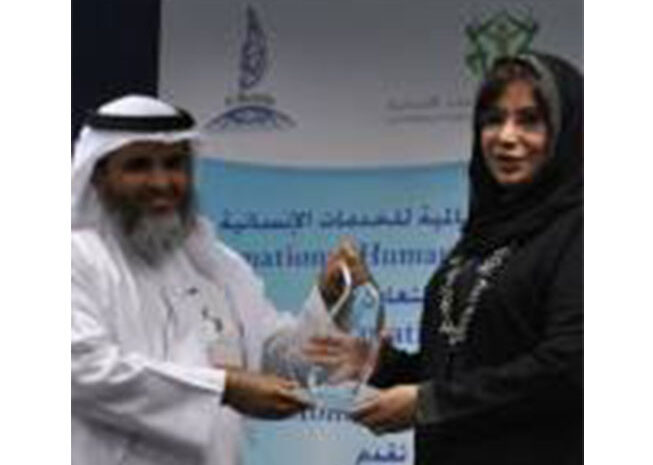
International Humanitarian City (IHC), the global humanitarian hub based in Dubai, hosted in coordination with Al Muntada Al Islami a regional humanitarian partnerships workshop on Thursday. The workshop was conducted by an expert specialist in the humanitarian field and was attended by United Nations officials, regional and local NGO’s and government representatives.
IHC CEO, Ms. Makiya Al Hajiri welcomed the attendees and emphasized on the importance of collaboration in the humanitarian sector. She commented that, “IHC is honored to be a meeting ground for such respected humanitarian organizations, and hopes that this workshop will build on the good work being done in the UAE, and result in beneficial and useful partnerships.”
28 leading humanitarian organizations gathered at IHC for the workshop, including UN agencies such the WFP, UNHCR, UNDSS, and UNOCHA. In addition, there were representatives from the government, including the Department of Islamic Affairs & Charitable Activities and the UAE Office for the Coordination of Foreign Aid (OCFA). Leading regional and local charities such as the UAE Red Crescent, Sharjah Charity House, Ras Al Khaimah Charity, and Beit Al Kheir Charity, as well as IHC member NGOs, attended the three hour session.
Mr. Khalid Al Fawaz led the participants through a detailed and interesting discussion on how to provide an opportunity for cooperation & partnerships. He provided different means & ways that could lead to valuable partnerships between the different international NGOs through the support of International Humanitarian City.
The workshop was especially relevant as it talked about the need for innovative & effective response during the increasing and unprecedented humanitarian challenges that the world is facing today- whether its natural disasters or man-made conflicts.
As the participants learnt and discussed about how communication, sharing experience and future collaboration help in coming up with effective humanitarian solutions, the main focus was on how the response is most effective when there is cooperation and partnerships between government and non-government organizations.